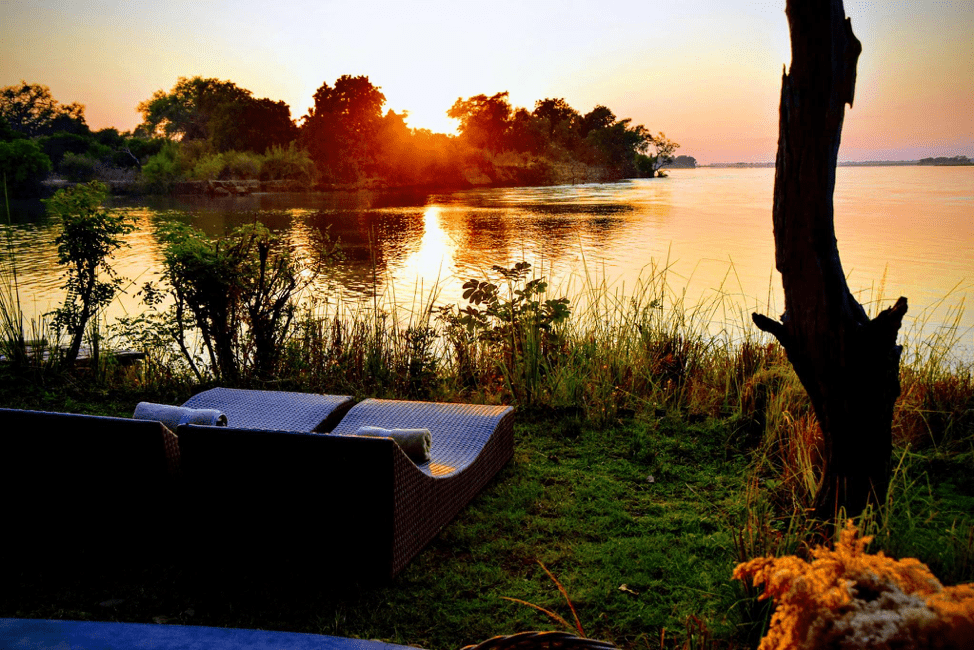 So, you haven’t been on Safari in Zambia yet.
So, you haven’t been on Safari in Zambia yet.
That’s ok… because we have created this guide for you. She goes through an entire Safari day and tells you about what you may expect deep in one of the most remote African wildernesses on the planet.
(Full disclosure. The start is going to be early.)
5:30 a.m.:
Wake up call
This was the most challenging part of the day for me as I am not an early riser and it’s dark and chilly at this time in Zambia in June. One of the most useful items we packed for our Safari were headlamps; we needed them to find our clothes and see in the mirror at our eco-friendly camps. I learned to get entirely dressed first, including my fleece jacket, before toothbrushing and that other stuff, to get warm.
6:00 a.m.:
Breakfast
All our coffee was made with a French press. The water was heated in kettles on an open fire. The eggs were cooked in cast iron pans over an open fire, and our meals were always eaten outside.
At breakfast, I began to appreciate waking up early to see the sun rising in a golden ball over the Luangwa River in South Luangwa National Park and turning the Zambezi River pink and orange in Lower Zambezi National Park.
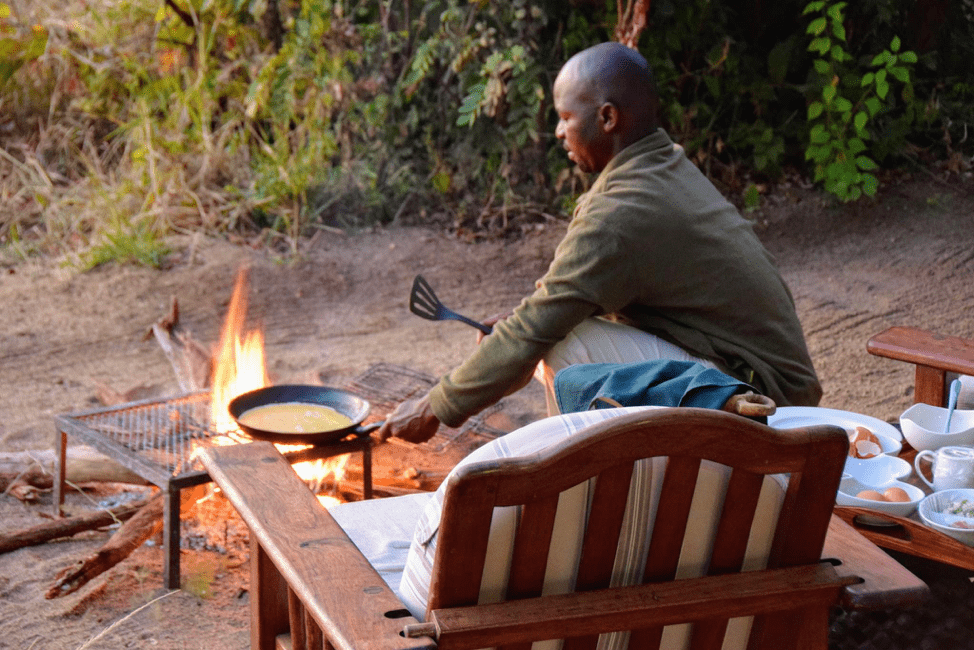
6:30 a.m.:
Activity Time
We would leave for our first activity of the day – usually a morning game drive, a walking safari, or while on the Zambezi River, a boat safari to fish for tiger fish. It’s cold in open vehicles early in the morning. However, this is the only time you can go on walking safari in the South Luangwa National Park as it gets too hot later in the day.
Animals are eating everywhere. One day we saw wild dogs covered with blood from another animal they had eaten for breakfast.
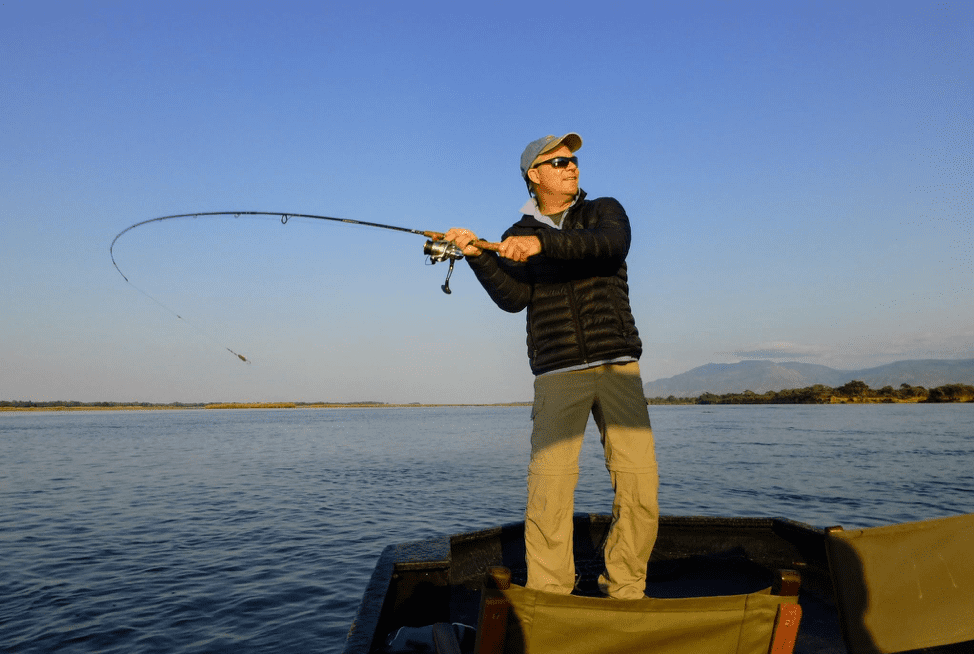
8:30 a.m.:
Coffee Break
Tea or coffee served on the vehicle’s hood or on the boat. Hot out of the thermos, we would drink from metal cups along with tins of cookies called biscuits. One morning we had coffee with a huge herd of zebra – that never happened to me at Starbucks.
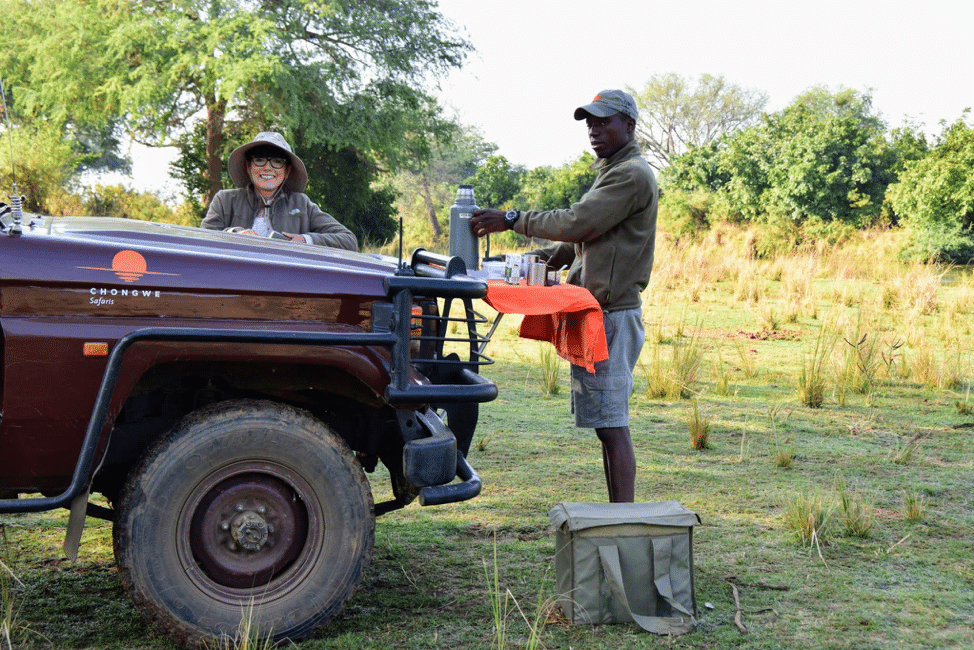
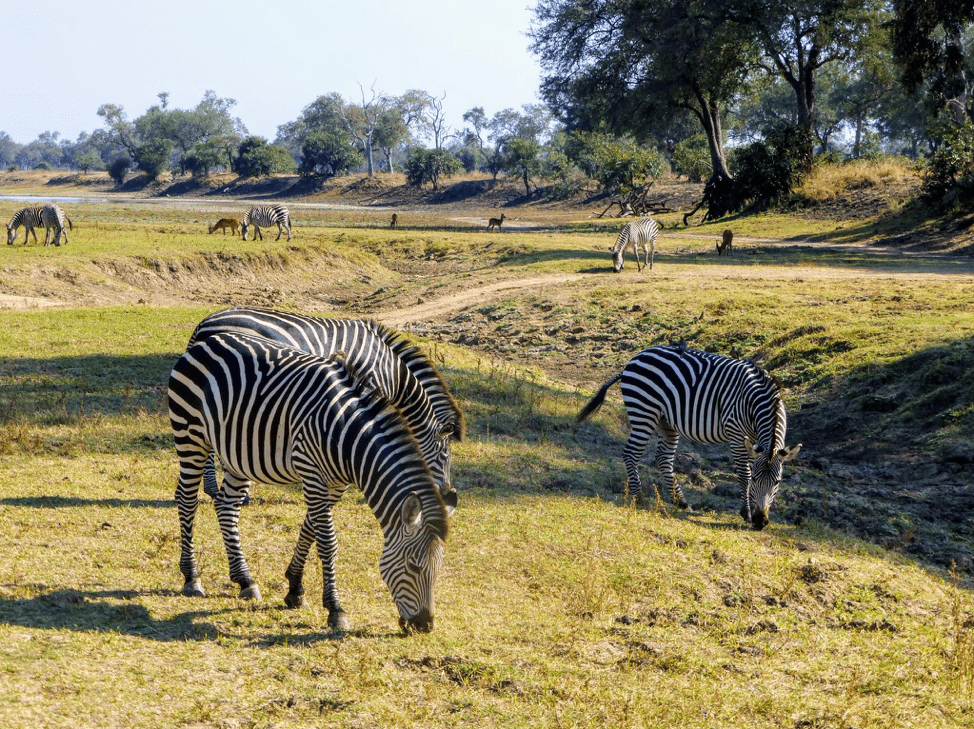
9:00 a.m.:
Activity Time
Back into the Safari vehicle from your Walking Safari, the coffee break on a Vehicle Safari or back to fishing, seeing more animals and an ever-changing vast landscape. The sun has risen, and the scenery is bucolic.
11:30 a.m.:
Lunch
A big lunch outside, either back at camp or set up alfresco on the banks of a river, where you arrive by your vehicle or boat. This meal always included wonderfully fresh crisp salads, full of colorful vegetables.
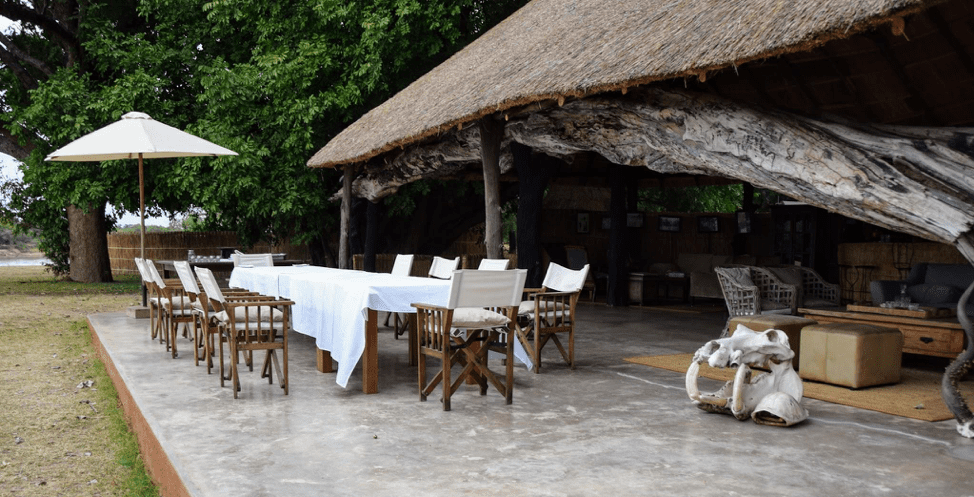
12:30 p.m. to 3:30 p.m.:
Free Time
Time to nap in your chalet, swim in the pool or socialize with other guests.
I particularly enjoyed writing in my journal at the writing desk at Nsolo Bush Camp— right under the photo of Norman Carr with his two lions at his feet. This desk was in the main lodge which was empty at that time.
Gloria, the camp manager, gave me permission to go behind the bar and make myself a drink, which I did. Once I arrived at the open-air lodge to find vervet monkeys everywhere, including one sitting on the bar. When I approached, the monkey ran behind the bar but never offered to make me a drink…
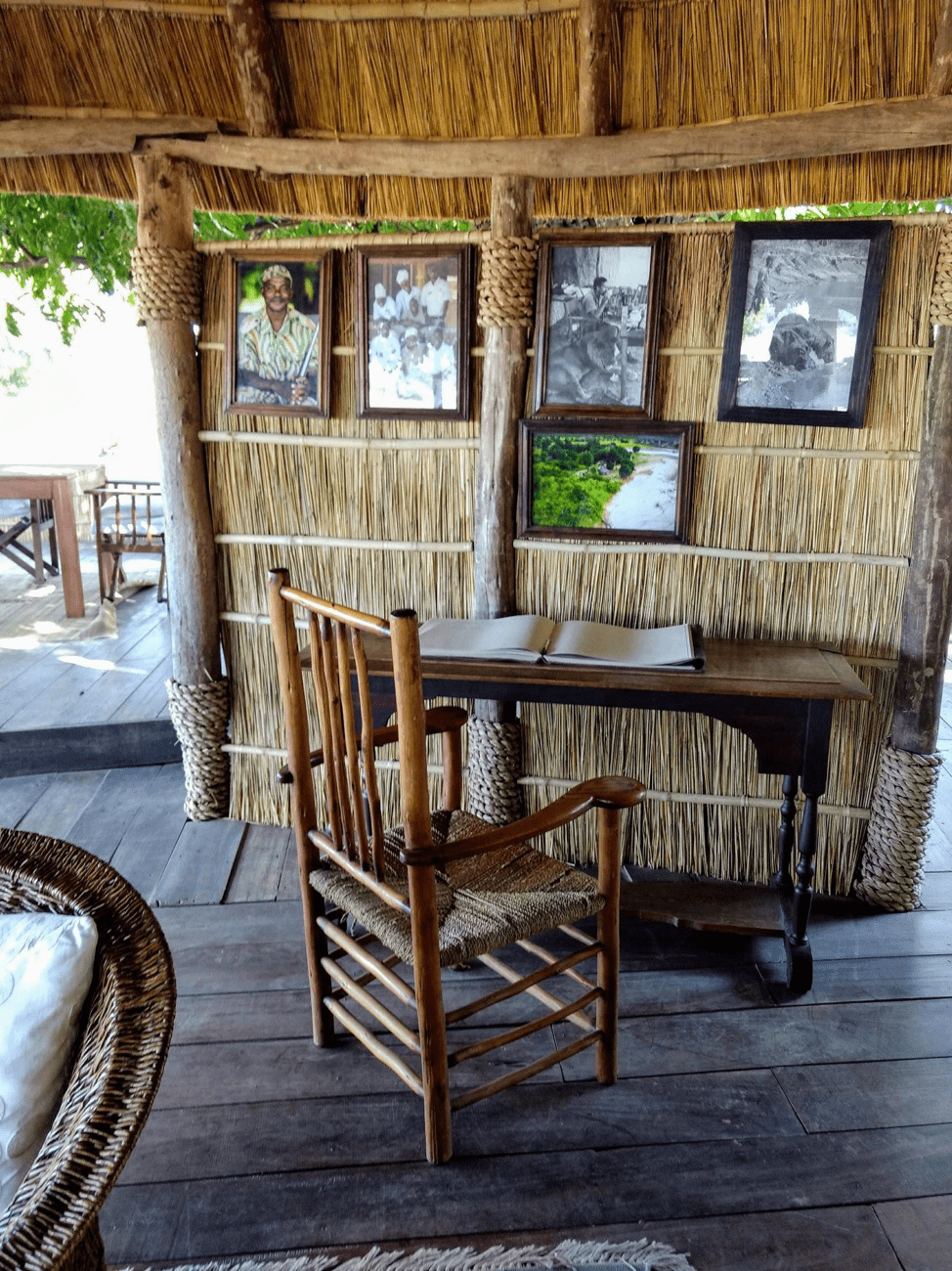
3:30 p.m.:
Tea Time
Time for coffee, tea or “lime” which was similar to lime-ade. This was served with beautiful, decadent cakes. The food was wonderful, delicious and extravagant everywhere… amazingly, everything was cooked outside over an open fire or in a Bush kitchen.
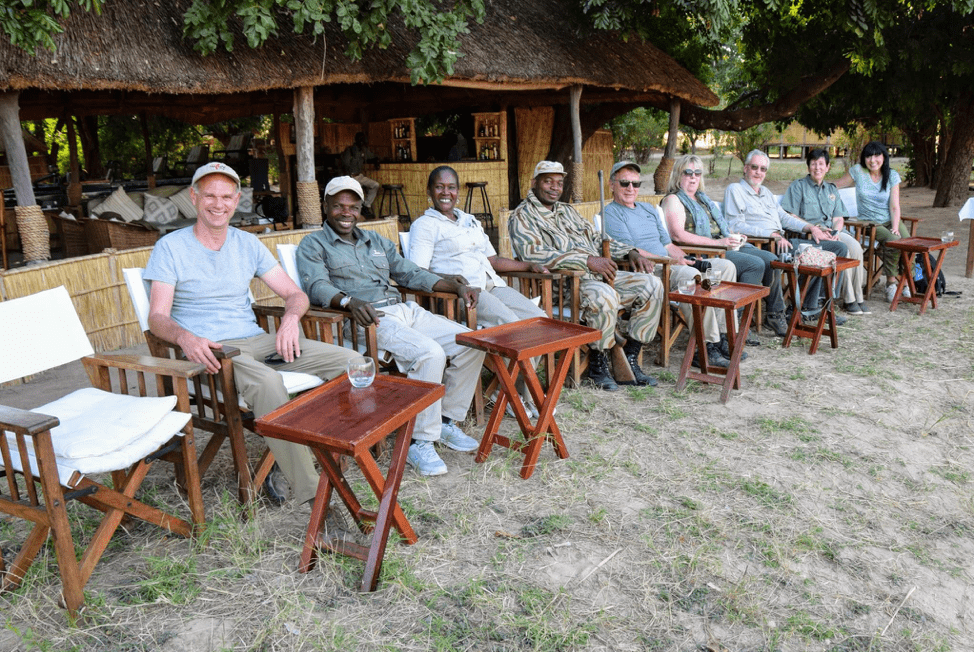
4:00 p.m. to sunset:
Evening Game Drive
The first evening activity. Usually an evening game drive or, while on the Zambezi River, a boat or canoe safari. The animals would also be getting up to eat again.
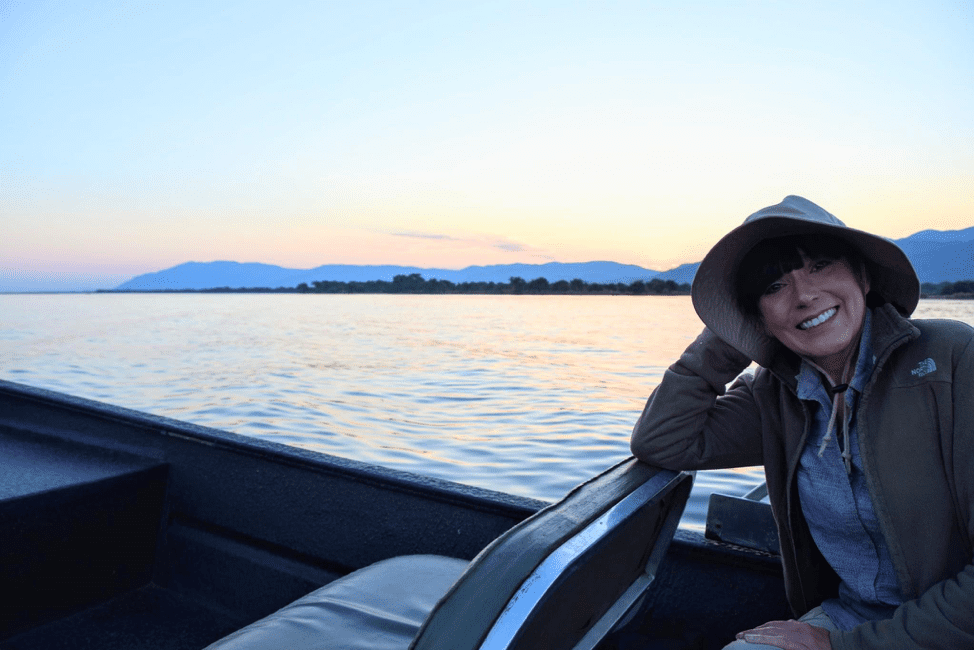
Sunset:
Sundowner Time
Cocktails of your choice are served outside wherever you are driving, canoeing or boating, along with snacks. The guides would pull out a cooler and set up the bar on the vehicle’s hood along with snacks, such as biltong, which is like beef jerky, popcorn, and mini-pizzas.
Because you didn’t just eat cake two hours ago…
The sun is setting. Sets early because it is winter time there. Sets quick, too. Seems quicker than in the Northern Hemisphere.
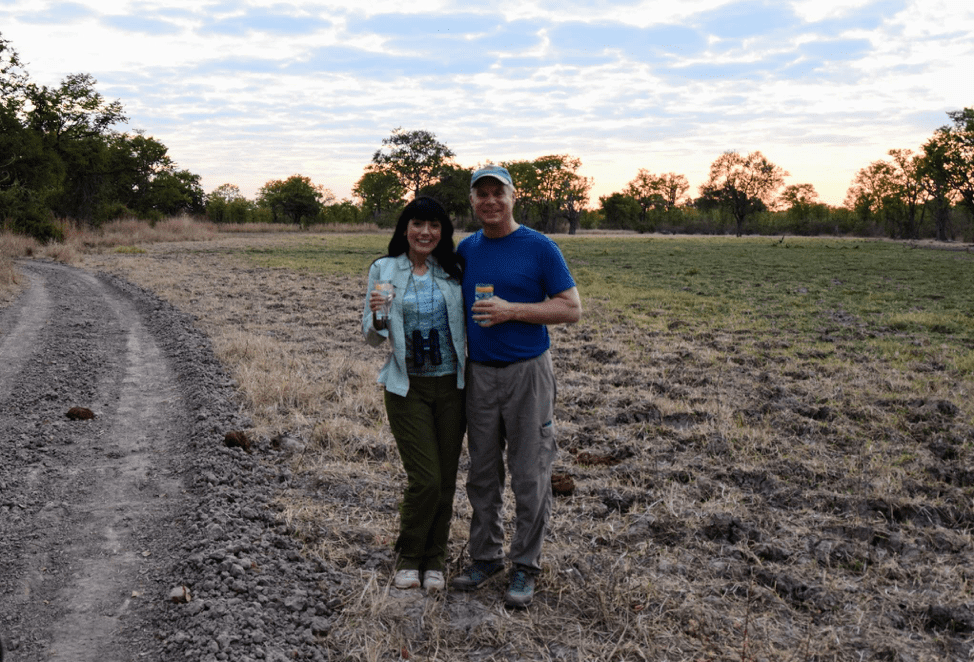
Sunset to 7:30 p.m.
Nighttime Game Drive:
It gets dark around 6:00 p.m. in Zambia in June. Nighttime game driving in the pitch black bush with a spotter and his spotlight is super exciting as you never know what’s going to be around the next curve in the road.
A huge elephant charging the vehicle, a giant male lion lazing by the side of the road, a herd of elephants with babies heading out to munch leaves, a hippo which came on shore to find food, four lionesses eating a greater kudu they killed, five male lions still sleeping, and even a porcupine.
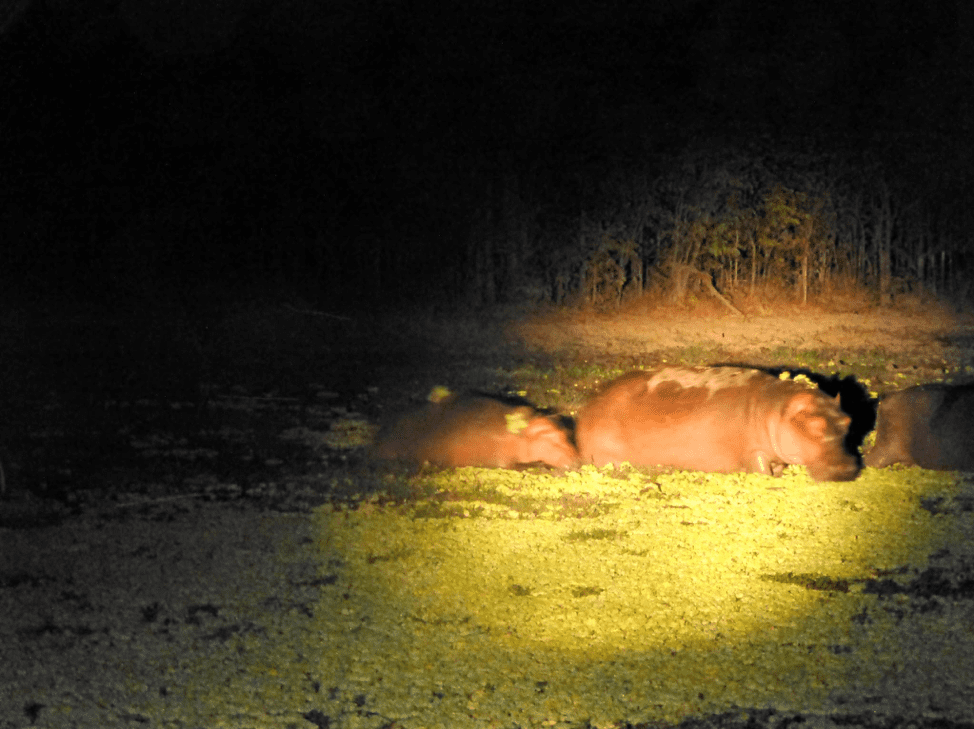
7:30 p.m.:
Dinner
Back to camp where they greet you with a hand towel, a refreshing drink, and “nibbles” which you eat in the lodge while you tell the staff about everything you saw on your evening’s activities. Then transition to the dining area for a three-course dinner with wine, champagne, and cocktails.
Every lunch and dinner was announced prior to serving in this manner:
“This evening’s dinner will be a starter (not called an appetizer) of crab cake. Our entree will be a roasted leg of lamb served with mint jelly, au gratin potatoes, and green beans. Dessert with cheesecake with fresh strawberries and cream.”
Only after the announcement could you start eating.
Everything was very proper. Zambia had been under British rule, just like the U.S., until their revolution in 1964 (much later than the U.S. in 1776), so British influence remains present. Everyone also speaks English in Zambia along with their native dialects.
At Mchenja Camp we had a private dinner, served on the banks of the Luangwa River, one at Nsolo Camp for our anniversary, served on the deck of our chalet, and every night at Chongwe River Camp where all meals were served by our butler Michael, in our private dining area overlooking the Zambezi River.
On our last night, we had a particularly beautiful table set with champagne and a card from Leora Rothschild wishing we had a wonderful time.
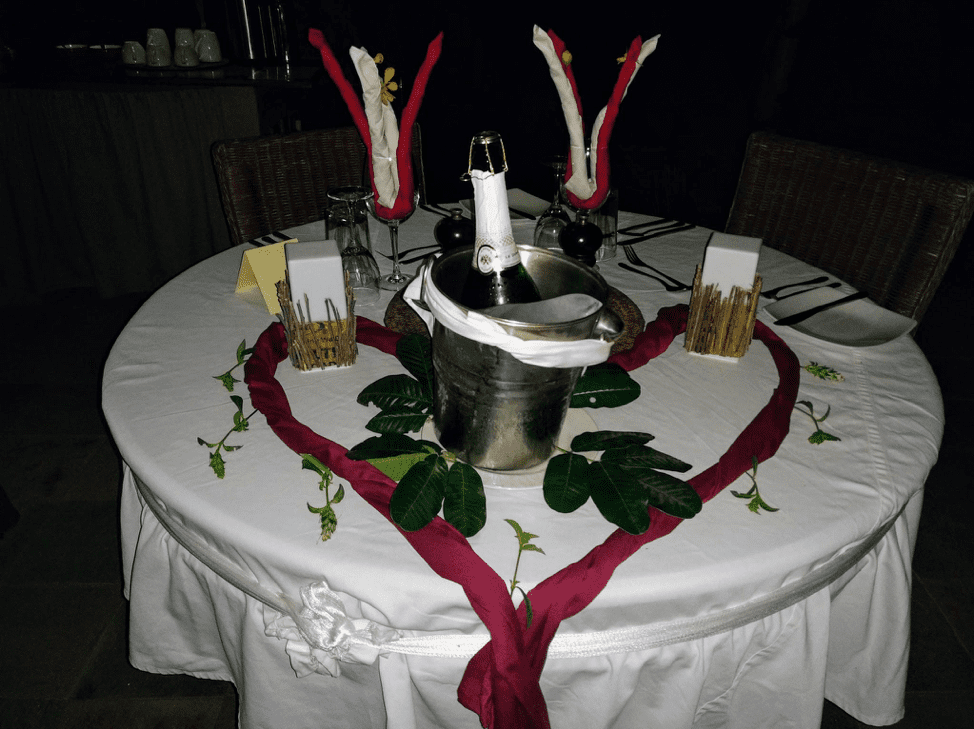
9:00 p.m.
Bush TV
Time to watch the “bush tv” which is sitting around the fire with the other guests, having an after-dinner drink (which they call a digestif). I particularly liked Amarula, which tasted like chocolate Bailey’s and was made out of the fruit from the Amarula tree which elephants apparently eat and can get drunk from, hence the picture of the drunk elephant on the bottle. You can find Amarula in the States and now there is always a bottle in my house.
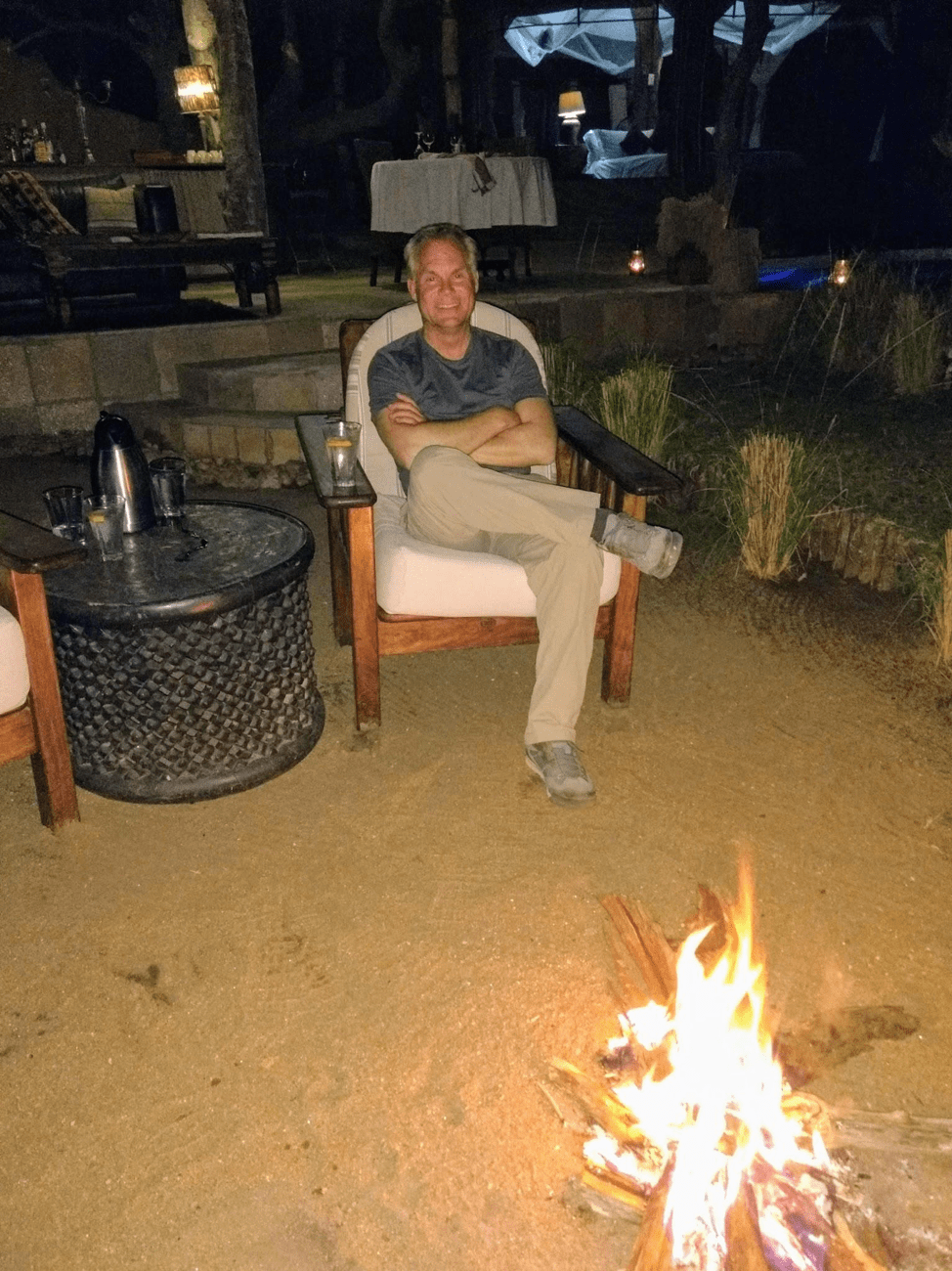
9:30 p.m.
Bedtime
The camp staff would have dropped the mosquito nets around the bed in your chalet by the time you returned for bed. These were rather challenging as you had to navigate around them to get ready for bed in the dark, then try to get through them to get into the bed through their folds, then get out of them in the middle of the night to go to the bathroom (see mention previously of the headlamps = lifesavers, always take your headlamp to bed with you).
A nice touch was a hot water bottle placed where your body goes in the bed under the covers. You could hug it all night and it stayed warm for hours.
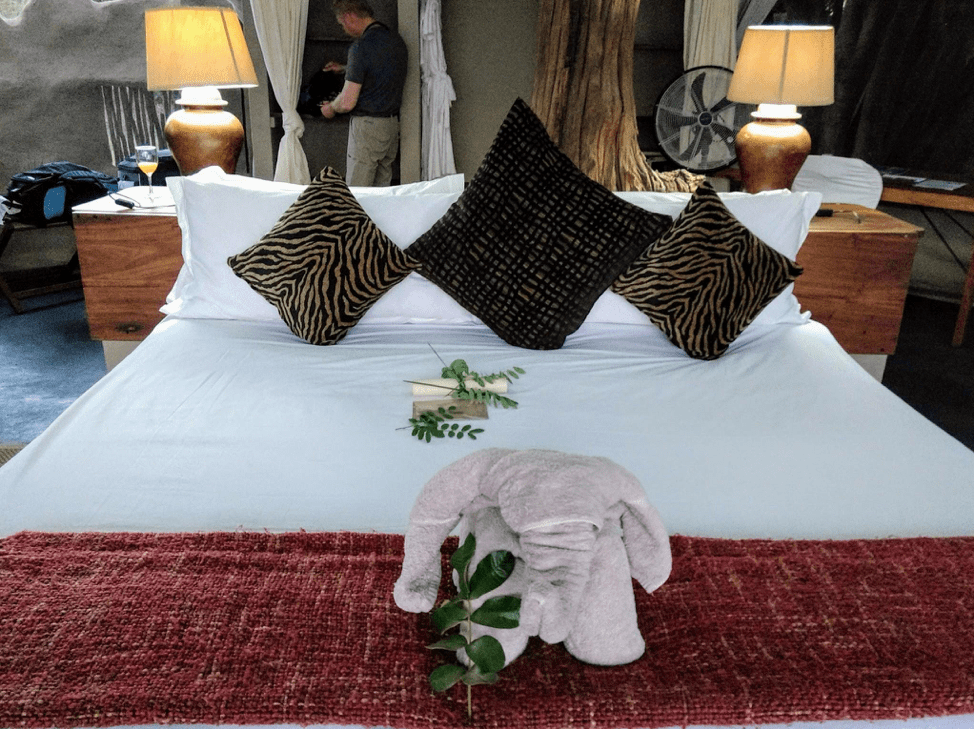
I never go to bed at 9:30 p.m. back home, but on Safari I had no problem going to sleep right away. Sometimes the hippos would wake us up with loud grunting in the middle of the night. Once the baboons woke us up with their alarm calls as a lion was in the camp. Twice we were woken up by a hippo munching grass outside our chalet (at Mchenja and Chongwe River).
We fell into the routine very quickly, loved it in fact. My husband woke up every morning saying,
“I wonder what adventure today will bring.”
Life was lived outside, without much in the way of modern conveniences.
-
Laundry was done by hand
-
Food cooked over open fires
-
No wifi or computers
-
No tv
-
No traditional electricity (mostly solar-powered lanterns for lighting and bathing water heated over a fire)
-
Open-air bathrooms with only screens or thatch for walls.
We didn’t miss a thing.
It was actually freeing, peaceful and the best trip we ever had.
